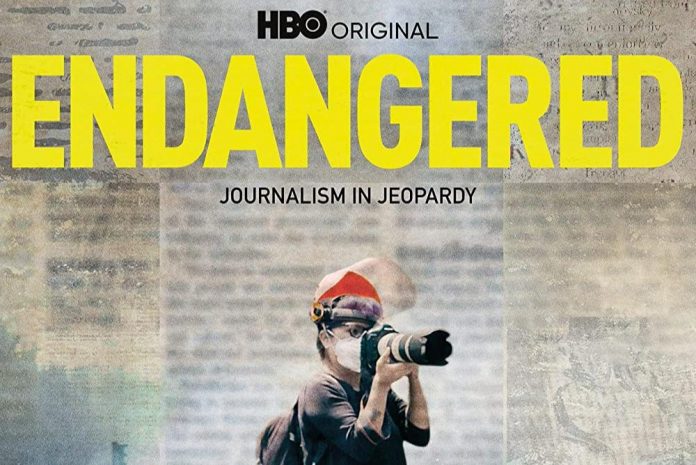Friday, Nov. 4, The Reves Center for International Studies, The Human Security Law Center and the Virginia Center for Investigative Journalism at WHRO-FM collaborated to bring accomplished journalists together for the “Press Freedom Under Attack: 21st Century Threats to Journalists and Democracy” symposium.
Dr. Teresa Longo, the Associate Provost for International Affairs and Executive Director of the Reves Center, explained that her objective for the event was to provide students with an opportunity to converse about one of the world’s most urgent concerns and bring an “international dimension” to learning.
“This Symposium is an example of something W&M does well–– bring students into contact with scholars and professionals,” Longo wrote in an email to the Flat Hat.
The symposium featured a series of global journalists to spark conversation about global media oppression. Following the opening remarks from Dr. Longo and Nancy Combs, a professor of law and Director of the Human Security Law Center at the College of William and Mary Law School, the event kicked off with comments from Tikhon Dzyadko, the Editor-in-Chief of Dozhd TV (also known as TV Rain)
As the only remaining independent television news station in Russia, Dzyadko had tremendous experience fighting the brute repression of the media. TV Rain’s creation in 2010 coincided with Russian President Vladimir Putin’s rise to power.
“We decided that it is really important to try to show the people the real picture of what is happening.”
“We decided that it is really important to try to show the people the real picture of what is happening,” Dzyadko said.
As independent news stations across Russia were suppressed and filled with propaganda, TV Rain took it upon itself to push beyond barriers put in place by Putin’s administration.
Dzyadko’s honest take on journalism came at a cost, however. He reminisced about him and his wife, a news director at TV Rain, receiving threats by mail, phone calls and SMS.
“We received a visit from Russian Police,” Dzyadko said.
After this visit, Dzyadko had to relocate his station’s operations to Latvia.
Despite their constant battle with the Russian government, Dzyadko and his staff receive almost 25.5 million monthly viewers, with 14 million viewers from Russia. TV Rain’s delivery of honest information to the Russian people continues through 2022, giving on-the-ground coverage of Russia’s war with Ukraine and overcoming barriers erected by Russian media oppression.
Following Dzyadko’s remarks, the symposium moved into a panel focusing on “Endangered: Journalism in Jeopardy,” a new documentary on HBO about press freedom globally. Moderated by Rachel Sleiman J.D. ’23, the panel included three guests specializing in press freedom.
The first panelist, Rachel Grady, is the director and executive producer of the film.
“It felt like a civil service,” Grady said in reference to bringing the issue of media oppression into the mainstream through film.
Supporting her on the panel was Joel Simon, an author and journalist for The New Yorker and the Columbia Journalism Review, specializing in press freedom through his writing. Carl-Philippe Juste, a photojournalist for the Miami Herald and a featured profile in “Endangered,” was also an honored guest on the panel.
Grady’s documentary highlighted Juste’s experiences with media intimidation. During his coverage of numerous protests, Juste’s role in “Endangered” gave viewers a first-hand look into what press intimidation does to journalists. For Juste, mob confrontations and police violence were repeated encounters in his experience. Still, he emphasized that it only proves how much bravery is necessary for journalism in the 21st century.
“This film was a candle in a very dark time, globally, personally and in my community. And I will hold that candle up, protect the flame as long as I can. I just need more candles in that room.”
“This film was a candle in a very dark time, globally, personally and in my community,” Juste said. “And I will hold that candle up, protect the flame as long as I can. I just need more candles in that room.”
The second panel focused on media intimidation on a global scale beyond the scope of a documentary. Moderated by Christopher Tyree of the Virginia Center for Investigative Journalism, the panelists used the platform to discuss their projects on press freedom.
The first panelist to speak was Martin Plaut. Plaut is currently a Senior Academic Fellow at the Institute of Commonwealth Studies at the University of London, as well as a former BBC journalist and trusted advisor to many governments.
“The thing I’m working on particularly now is the horn of Africa, where places like Eritrea allows nobody in,” Plaut said. “They have no free press of any description.”
Specifically, Plaut shared details of Eritrea’s war with Egypt, one of the longest and deadliest conflicts in African politics. However, the restriction of the press leads to a lack of general knowledge and, thus, no public backlash to push governments to find peaceful solutions.
Natalie Southwick, an Americas research associate at the Committee to Project Journalists, reaffirmed Plaut’s anecdotes through her findings.
“It’s been the deadliest year that we’ve ever recorded for journalists both in Mexico and Haiti.”
“It’s been the deadliest year that we’ve ever recorded for journalists both in Mexico and Haiti,” Southwick said.
She also touched on the danger journalists experience in countries like Nicaragua and Guatemala, where nations throughout the Americas use the legal system to suppress the free press.
The panelists agreed that much of the world is in a dark time for journalism.
“We’re going to rebuild,” Tyree said.
The discussion began to focus on how the younger generation can support a safer and more liberated world for the press and why it is important to do so.
The effort to inform future generations of the importance of free press is why these professionals came to the College and joined this symposium. Reaffirming the importance of journalistic freedom to future generations of politicians, lawyers and even journalists is necessary to foster a safer press environment.

